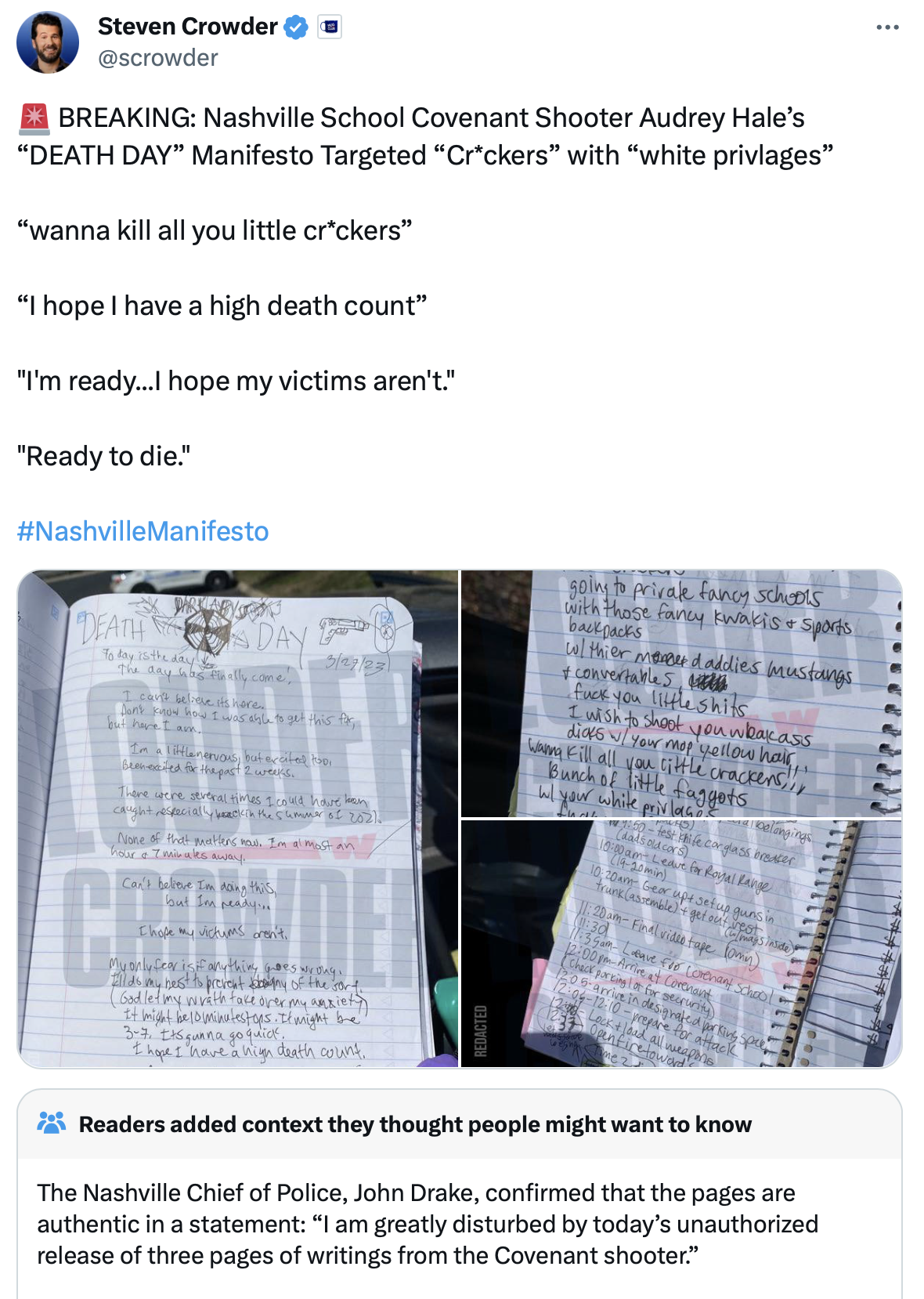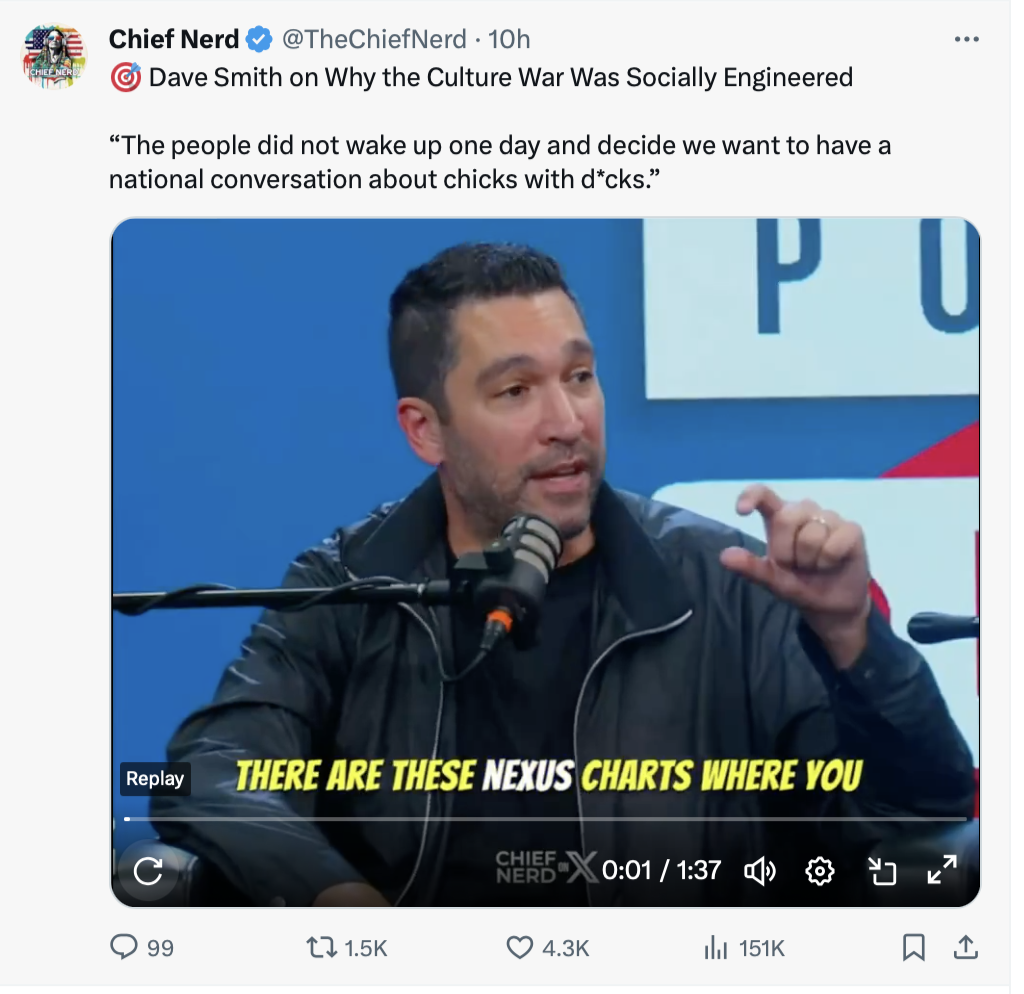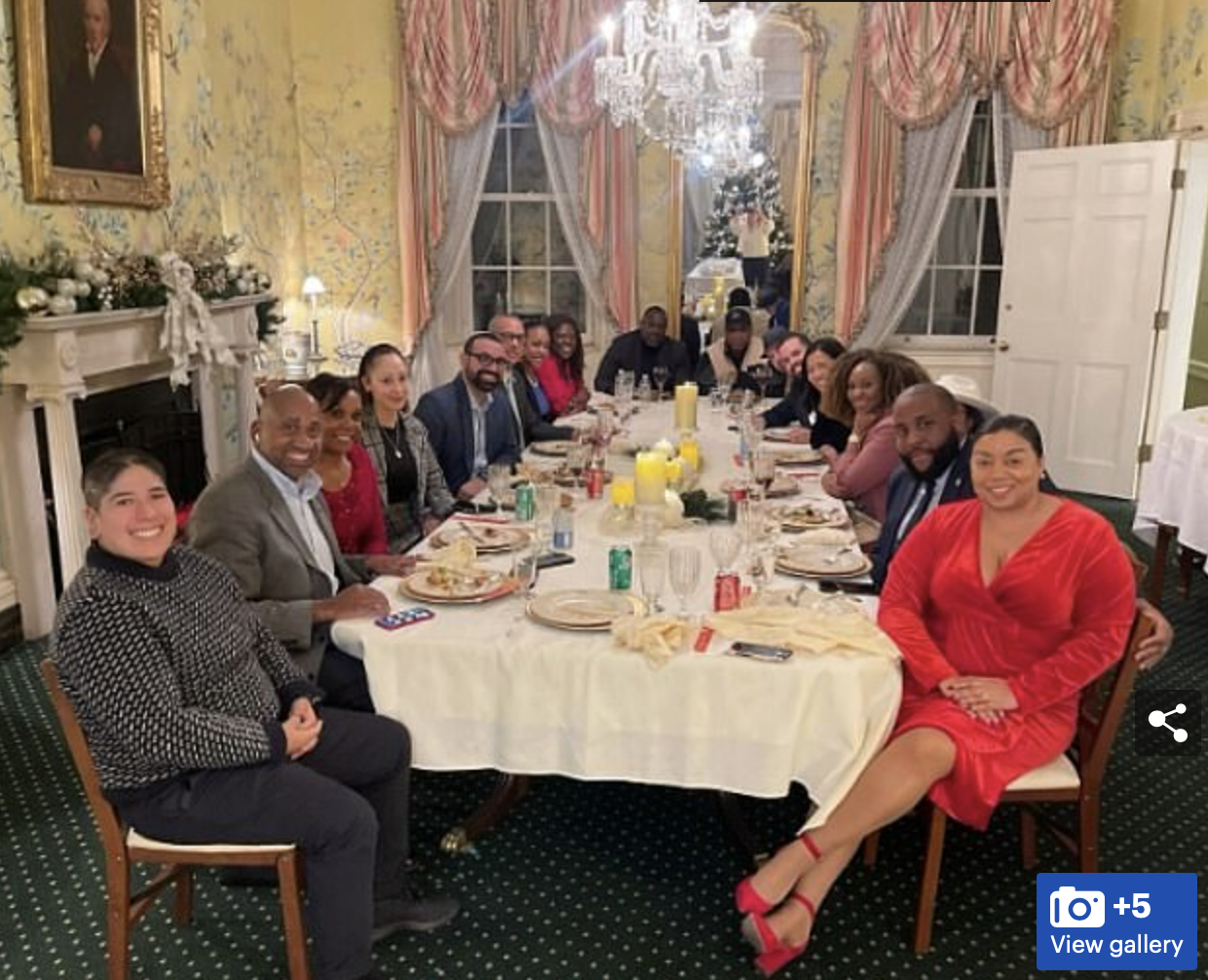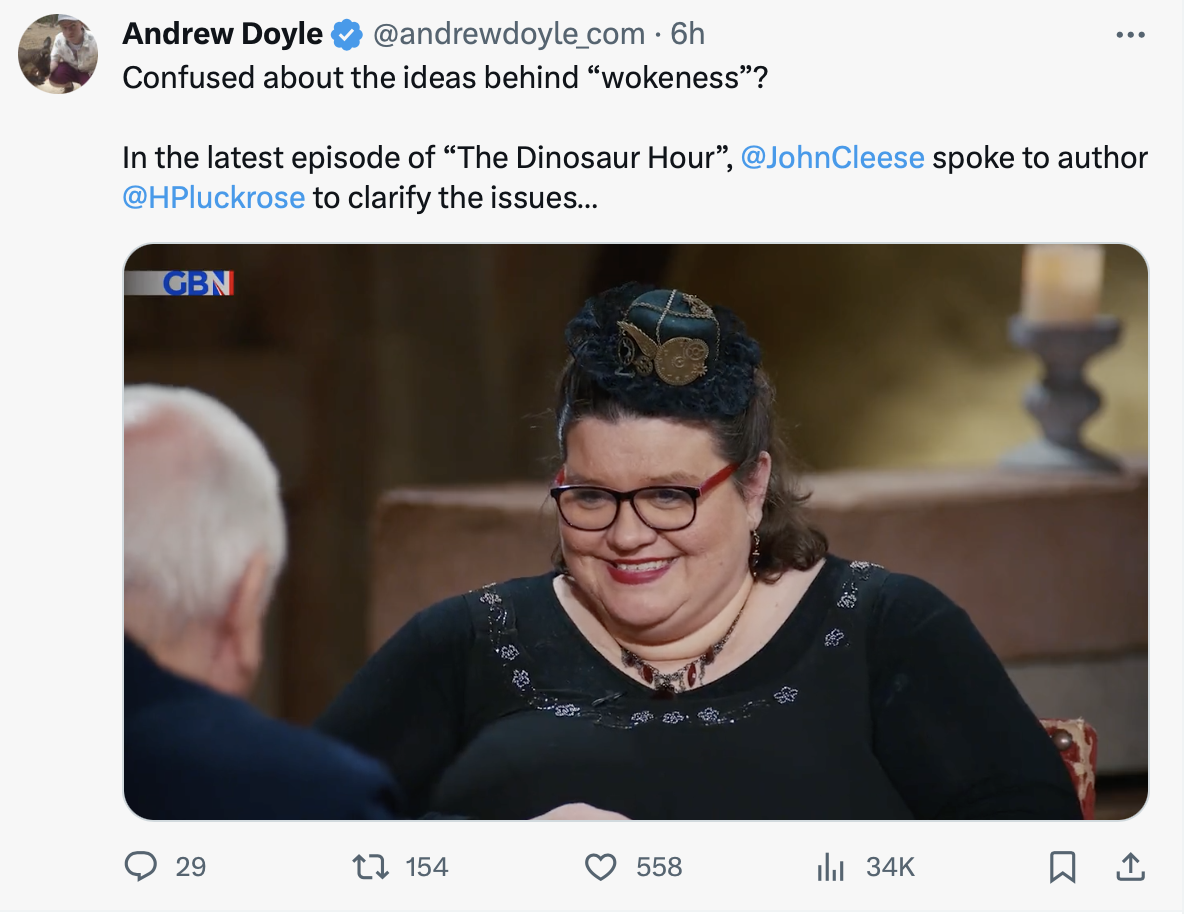The Nashville mass killings were a big national story covered by all major news outlets. A vicious person gunned down three children and three adults at a school in Nashville. Immediately after the shootings, all of us wanted to know why the shooter fired 152 rounds, murdering six people. Back on April 3, CNN reported that the police "have yet to determine a motive."
But then, oops, we learned that the shooter was a trans person, meaning that lots of special rules kick in. The main rule: Even though the shooter wrote a long manifesto, it's important that we keep the manifesto secret. Government officials and corporate media outlets have marched in lockstep ever since.
Thus, at at NPR or MSNBC, you won't learn anything about the fact that three pages of the shooter's manifesto have been leaked. Back near the time of the killings, however, on March 28, 2023, MSNBC wrote:
A day after Monday’s shooting at The Covenant School in Nashville, we know much more about the shooter and the dead. But one question remains: “Why?” Why this school, why these victims, why was the shooter motivated to take these lives? The search for a motive is a logical one. There’s a deep desire to understand what pushed a person to carry out such a heinous crime, especially when three children are dead.
Now that three pages of the manifesto have been leaked, MSNBC no longer has any interest in sharing with us what the murderer wrote on those pages.
NYT, CNN and WaPo published stories reporting that several pages were leaked and that they are authentic, but none of these three outlets offer any specifics about what the three pages reveal. No quotes and no images of those pages. The NYT focuses on how upset government officials are that three pages were leaked (without describing the content of the leaks). CNN focuses on the alleged fears of some parents that release of the manifesto will harm people, including by "copycat attacks." CNN sanitizes the leaked pages, saying only:
The released pages use hate-filled language directed toward the school and children and include what appears to be a timeline of events seemingly leading up to the shooting.
And here's Google/YouTube, once again keeping us safe from knowing important things, such as the motives of mass killings, as Seth Dillon attempted to report:
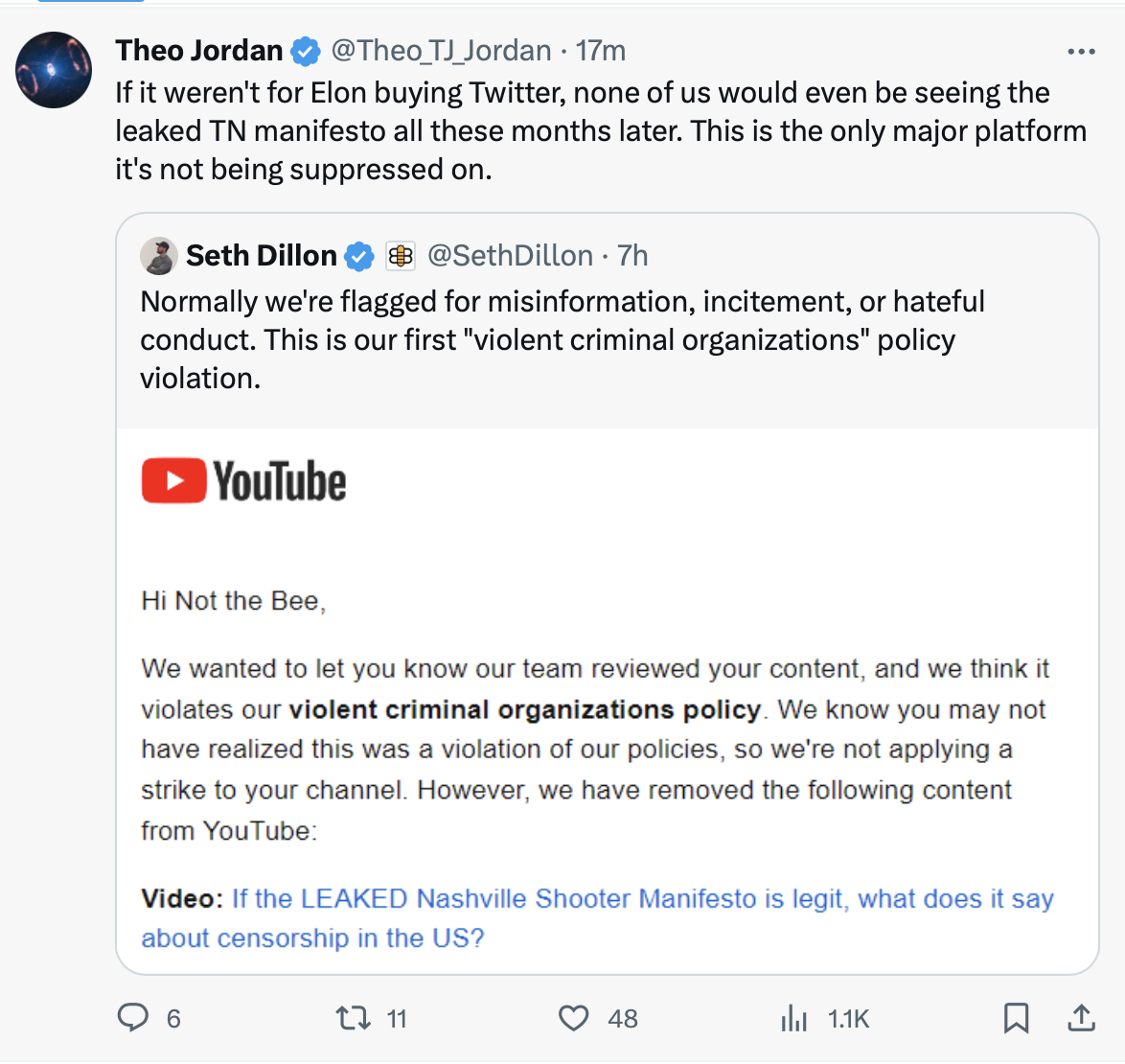
What do we know from those three pages? To actually know the words the killer wrote, we need to turn to X (formerly Twitter): Steven Crowder writes:
BREAKING: Nashville School Covenant Shooter Audrey Hale’s “DEATH DAY” Manifesto Targeted “Cr*ckers” with “white privlages”
“wanna kill all you little cr*ckers”
“I hope I have a high death count”
"I'm ready...I hope my victims aren't."
"Ready to die."
